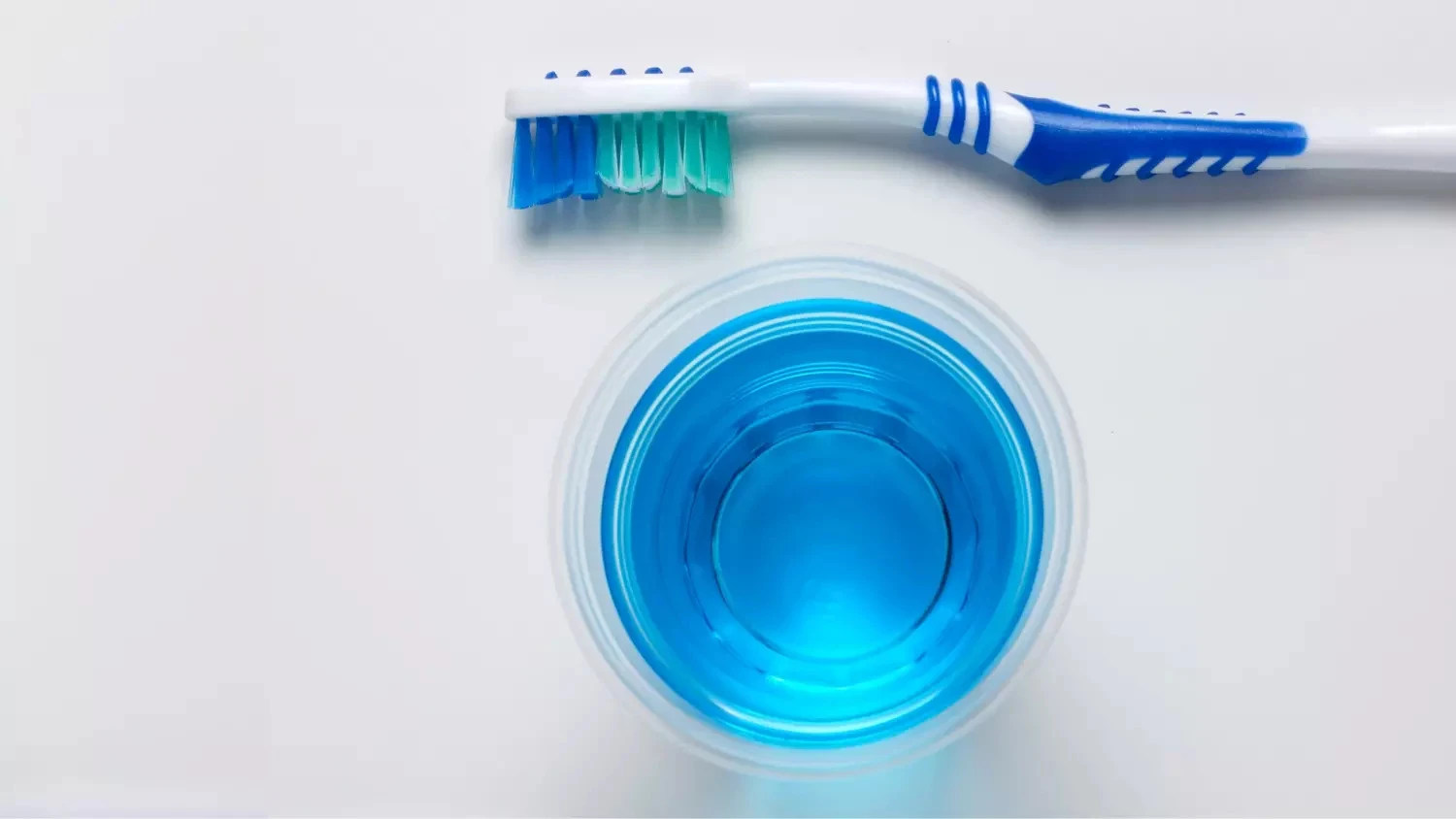When it comes to brushing and flossing, does it matter whether you floss or brush first? What order should you use mouthwash?
The research is mixed and not all experts agree whether flossing or brushing comes first. Some studies suggest flossing, or cleaning interdentally, first is best. It’s simply important that you do both daily and thoroughly. While the exact order of your 3-step oral hygiene routine isn’t as clear cut as you may like, Listerine recommends brushing, flossing, and then rinsing with mouthwash.
WHY FLOSSING YOUR TEETH IS IMPORTANT
Flossing cleans the spaces between your teeth as well as just below the edges of the gums, where brushing doesn’t reach. It’s important to floss at least once a day.
To floss, wrap the string around the tooth and slide up and down several times, allowing the floss to slip just under the edges of the gums each time. Lift the floss up and over your gums, then move to the next tooth. If you have a fixed bridge, retainer, or other hard-to-clean space, a floss threader should be used. Floss around every tooth, whether or not another tooth is touching it.
If your gums bleed when flossing, you might have gingivitis. Luckily, gingivitis is a reversible disease with routine dental visits and good home care including thorough brushing, flossing, and rinsing with mouthwash.
BENEFITS OF BRUSHING YOUR TEETH
Brushing your teeth twice a day helps remove plaque bacteria, prevent tartar buildup, fight bad breath, and maintain healthy gum tissues.
It is generally recommended to brush for a minimum of two minutes twice a day, focusing along the gumlines both inside and outside of all your teeth, followed by brushing the chewing surfaces. If you tend to rush, consider using an electric toothbrush with a built-in timer. It's always a good idea to talk to your dentist or hygienist about the best brushing method and toothbrush for you.
Unless a dental health professional recommends otherwise, always use a soft toothbrush and gentle pressure to prevent enamel abrasion or gum recession. A fluoride toothpaste is recommended to decrease the risk of tooth decay and sensitivity.
WHERE MOUTHWASH FITS INTO THE ORAL CARE ROUTINE ORDER
Mouthwash is an important step of your 3-part oral hygiene routine. Since brushing and flossing physically remove most of the sticky plaque buildup and food debris, rinsing is an excellent way to holistically address any leftover germs or food particles in your mouth.
Why You Should Use Mouthwash
Mouthwash helps reduce and prevent gingivitis, kills germs that cause plaque and bad breath or if it contains fluoride, mouthwash can prevent cavities. It is recommended to be used in conjunction with a good brushing and flossing routine. Depending on your oral health needs, choosing the right mouthwash can help address specific concerns, like enamel demineralization, sensitivity, or preventing stains on teeth.
Mouthwash also eliminates leftover bacteria, brushing and flossing may leave behind, such as those that cause bad breath and gum disease.
Importance of a 3-Step Oral Care Routine
Brushing, flossing, and using mouthwash keeps your smile healthier and fresher on a day-to-day basis. Whether you floss before or after brushing doesn’t matter as long as you’re flossing daily and brushing at least twice a day. Complete your 3-step oral care routine with mouthwash to kill the germs that cause plaque, gingivitis, and bad breath.
FAQ
Is Flossing More Important Than Brushing?
Brushing and flossing are equally important, as brushing does not clean between the teeth or below the gumlines, where early gum disease starts. Both brushing and flossing are needed to mechanically remove sticky plaque buildup across your smile.
Why do I Still Get Plaque After Flossing and Brushing?
There are millions to billions of plaque bacteria that live in our mouths. Although brushing and flossing help remove those bacteria that live on the teeth, the teeth only make up 25% of our mouths. Therefore, the plaque bacteria living in the rest of our mouth quickly attach to the teeth within minutes after brushing and flossing. Using a mouthwash helps kill the plaque bacteria in the other 75% of our mouth, and therefore helps limit plaque buildup beyond brushing and flossing.
In Which Order Should I Floss, Brush and Rinse with Mouthwash?
Talk to your dentist or hygienist about the order in which you should brush and floss. However, you should brush and floss before rinsing with mouthwash.



